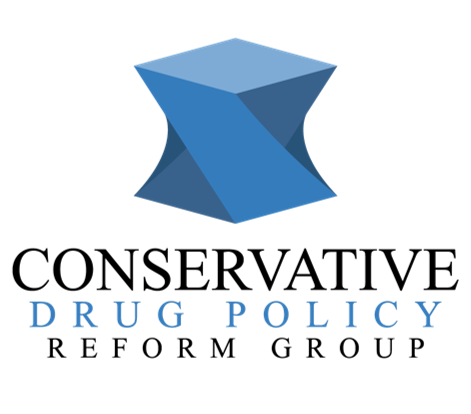The NHS spends nearly £650,000 daily on first line mental health treatments, such as pharmaceutical antidepressants, despite high levels of incomplete response or non-response and unpleasant side effects which reduce patient adherence. Mental health conditions represent the single largest cause of disability in the UK and are responsible for an estimated economic cost of £100 billion per year.

Despite this large expenditure, a number of mental health conditions such as post traumatic stress disorder (PTSD), major depression and end-of-life anxiety remain notoriously difficult to treat within the current psychiatric and therapeutic paradigm.
Enter psilocybin: a treatment for mental health that actually works
In an effort to solve this pressing issue, scientists and researchers have returned to serious explorations that began in the 1950’s and 60’s investigating the psycho-therapeutic potential of psychedelics — a class of psychoactive compounds with “mind-manifesting” properties — the term was coined by British psychiatrist Humphrey Osmond in 1956, combining two Greek words, psyche (mind, soul, spirit) and dēlos (clear, manifest). Psilocybin in particular, the psychoactive compound responsible for the psychedelic effect of ‘magic mushrooms’, has recently garnered considerable attention from the scientific establishment and mental health community as a promising adjunct to traditional therapy.

What is psilocybin-assisted therapy?
Psilocybin-assisted therapy is a mental health treatment in which the recipient experiences medically supervised sessions with psilocybin — the active component in “magic mushrooms — in a safe, legal context, as an adjunct to traditional psychotherapy. Modern psilocybin-assisted psychotherapy has, to date, only taken place as part of strictly regulated psychopharmacological research studies. The psilocybin therapy sessions are exclusively conducted inside university hospital buildings with tailor-made rooms designed to provide a relaxing environment.
Before ingesting the synthetic psilocybin used in these studies, patients spend the preceding month discussing their story and becoming comfortable with both of the therapists that will sit with them and provide support during their dosing session. These preparatory meetings are a crucial part of the therapeutic process as they establish the trusting and supportive relationship between patient and therapist necessary for a safe and therapeutic experience.
What happens during a psilocybin-assisted therapy session?
During the session patients are encouraged to lie down and relax while wearing eyeshades, a specially selected soundtrack is also played through earphones to help focus their awareness on what is happening internally. The psilocybin experience lasts for between 4-6 hours, with very little being said in the therapy room as the therapist encourages the patient to allow the experience to unfold organically.

Psilocybin session at Johns Hopkins | Wikipedia Commons
Afterwards, a series of integration sessions are conducted over the course of 6-8 weeks in which the material that arose during the psilocybin session is discussed in depth. This psilocybin-assisted approach to conventional therapy, as conducted by the psychedelic research teams at Imperial College, King’s College and others, is being found to be effective at helping individuals overcome deep-seated emotional suffering, an insight corroborated by hundreds of anecdotal reports from patients who have sought out psilocybin-assisted healing experiences, either as clinical trial participants or in legal settings abroad.
“Treating the emotional aspects of illness is a humane and necessary aim of science; allowing people to stay connected and present with their loved ones at a time when quality of life is perhaps more important than ever.”

(Image: https://drlaurenmacdonald.com | < Find out more about her incredible work and journey)
Psilocybin works: Hear it from Stage IV cancer survivor Dr. Lauren Macdonald
One such individual is Dr. Lauren MacDonald, a Brighton based medical doctor, integrative practitioner and yoga teacher, who in 2014 was told she had melanoma, the deadliest known skin cancer. After 6 months of receiving a cutting-edge immunotherapy trial treatment from the NHS, Dr. McDonald's scans showed “No Evidence of Disease,” but while her body had recovered, the cancer had left her with a debilitating end-of-life anxiety that persisted for years.
Eventually, after watching a Ted Talk given by Johns Hopkins Professor Roland Griffiths on psilocybin for anxiety treatment, she travelled to the Netherlands for a supervised, safe and legal session with psilocybin. She described this experience as “a paradigm shift in my attitudes to both life and death. [It] allowed me to cope with the crippling thoughts, fear and anxiety around my cancer diagnosis. Years later, I continue to lead a fuller life because of it.”
Is the British public ready for psilocybin-assisted therapy? Initial stats say “yes!”
PsiloNautica teamed up with Drug Science, the leading scientific body on drugs in the UK, to produce the first national survey of public attitudes towards psilocybin-assisted psychotherapy.
Carried out digitally in collaboration with YouGov, the May 2021 survey drew upon a broad sample of the British public with 1763 respondents representing every major region and demographic of the UK. The results showed that a majority (55%) support relaxing restrictions to make research easier and 58% supported changes to the law to permit terminally ill patients to access psilocybin-assisted therapy. Interestingly, these numbers jumped to 68% support when respondents were informed about clinical research developments, and policy advances elsewhere in the world.

A full breakdown can be found at DrugScience.
“Psilocybin’s enduring placement in Schedule 1 makes it all but impossible for our researchers to conduct the calibre of research necessary to develop treatments that would alleviate the suffering of millions. ”
With this clear public support and burgeoning interest from the scientific community it is time that Parliament seriously consider the inhibitory impact that its outdated drug policies are having on the evolution of mental health and wellbeing for the British people.
Words: Dexter Bohn, former president of the Drugs and Alcohol Awareness Campaign at Royal Holloway University, London

